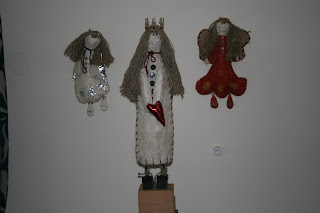The end of another year and, of course, the beginning of a new one. I hope that, like us, you are looking forward with great optimism although I suspect that 2012 is not going to be a good year for most of us and I will admit that our optimism is tinged with more than a touch of bravado.
One of the problems of Marcia’s international success is that we have friends (for her readers soon become our friends) in so many places that when disaster strikes – whether through man’s activities or natural events – the chances are we shall be worrying about some particular family or even families. That was the case when eastern Australia was hit by flooding and when Christchurch in News Zealand was devastated yet again by earthquakes. It was true when floods hit the USA back in May and Thailand during November where we have relatives as well as friends. Here in the UK and in other countries in Europe there have been similar problems. It would seem that the effect of global warming is to introduce more energy into the weather with strong winds and heavy rainfall becoming more frequent.
Having said all that, what a contrast to this time last year when it was bitterly cold and the garden covered in snow. This winter has been so mild that nature seems to have lost track of time. We have gazanias – which should have died ages ago - still in flower whilst some of the azaleas (not due to flower until the beginning of February) are already putting on a brave show. It will be interesting to see what happens if this first flush is killed off by frost. Will there be a second flowering at the proper time? A close look reveals that not all the buds are now open so that is a possibility.
Even madder: a friend reported seeing some ducklings on the river down in the valley below us. What will become of them I really don’t know.
There is an old Devonian rhyme:
Whether the weather be cold,
Or whether the weather be hot,
We must weather the weather
Whatever the weather,
And whether we like it or not.
Very true.
Christmas this year was rather special. Many of you will know that Marcia’s oldest and closest friend is Susie. She is a community nurse who works in north Cornwall about a thirty minute drive away. Although she is semi-retired she was working last Friday, Saturday and Sunday (Christmas Day – only a few visits in the morning but she was on call until 10 pm). Ages ago it was arranged that she would be staying with us from the Friday evening through to Boxing Day.
Towards the end of November, an email arrived from Sam: Susie’s son, Marcia’s godson, now living with his wife in Australia. As his mum was going to be with us, could they come and stay Christmas Day night, please? Not a word to Suzie in case it didn’t happen. Well, what can you say?
A week later we received a second email. This one was from Emma: Susie’s daughter who lives in Switzerland. As mum and Sam were going to be with us for Christmas. Could she and Toby come too? As an incentive she would make a Christmas pudding.
So it was that there were seven of us around our table that day. Of late Marcia and I have been trying to decide whether or not the time has come for us to think about moving into a smaller house. Although there are just the two of us here for most of the time and we do rattle around a bit there are times, like this, when we are glad of all the space and that we have a huge kitchen with a table that can easily accommodate eight. We shall be just as glad again later on today when our son and his family arrive to stay. Having been very busy over Advent and Christmastide, he will be glad to be away from his parish recharging his batteries and having them with us over the New Year always makes up for the fact that we don’t see them on Christmas Day itself.
 |
| Susie with Sam and Emma |
May I take this opportunity to wish you all a peaceful and healthy New Year but before you go take a look at the picture below. This is a tale of two cyclamen. Both are two years old. Both did wonderfully last winter. Both spent the summer together in the potting shed. Both were re-potted at the same time and into the same potting medium. The one on the right is fantastic - the other quite miserable (although it might get there, eventually). Now, why are they so different? If you think you know, please leave a comment with your ideas.
























































